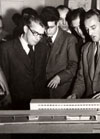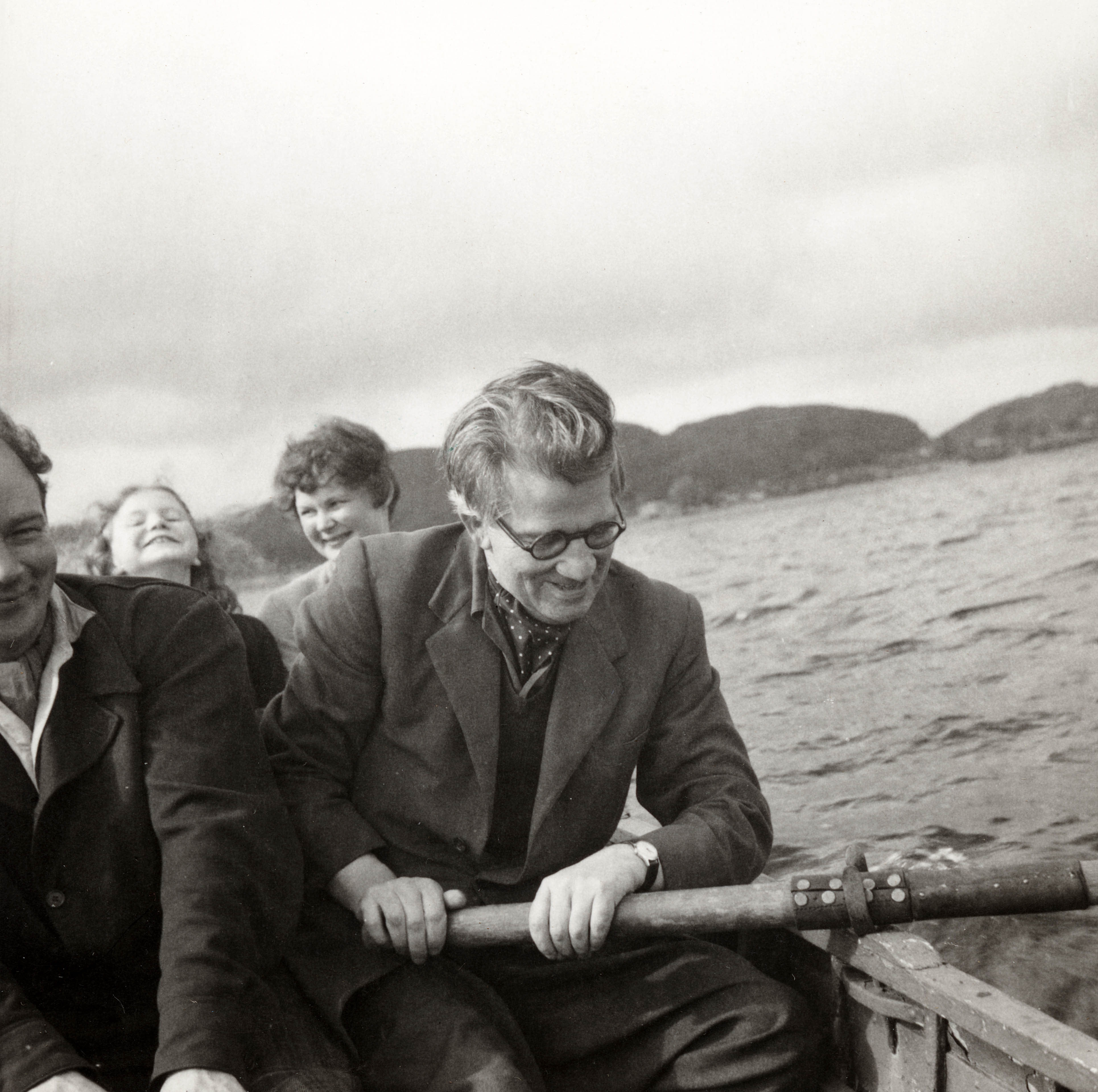The Later Years

Sharp described his career from 1950 as 'a period of such intermittent and few small engagements as can be accurately described as a period of near-unemployment' (Chronicles of Failure, p.254). He was only 49 in 1950. Initially his writings continued and Oxford Observed (1951), widely acknowledged as a classic, was followed by a contribution to the government publication Design in Town and Village (1953), which effectively reprised material from Anatomy of the Village, and a revised Shell Guide (1953), now confined to the more obviously picturesque Northumberland. Thereafter, apart from some notable and controversial contributions to the profession of planning (see below) and the publication of some of his commissioned work, Sharp's professional writing more or less dried up, with the notable exception of his last major book, Town and Townscape, published in 1968.

His work as a consultant was sporadic, although he did work on a retainer basis for both the City of Durham and J. Lyons & Co. for a period. Specific commissions included advising on traffic issues in Vienna, a plan for Rugby, advice on proposals for tall buildings in Cambridge (in opposition to plans by the University), a holiday village design at Port Enyon on the Gower Peninsula and a report on a possible new town in north-east Berkshire. No work was forthcoming from central government which he again felt to be the result of an unofficial black-listing for being 'difficult'. He occasionally appeared at planning inquiries. His longest running involvement over some thirty years, mostly as an unpaid objector, was at the series of inquiries over roads in Oxford. Various controversial plans for relieving traffic in Oxford existed when he undertook his plan for the city in the 1940s and he introduced another; a substitute road across Christ Church meadow. The meadow road and its alternatives were the focus of five public inquiries before all the proposals involving major intervention were abandoned in the changed political and economic climate of the 1970s.

Similarly, Sharp occasionally controversially engaged with the Town Planning Institute. He wrote critically of the consequences of the 1947 legislation in 1957 but more significantly he was one of the leaders in a bloody counter-revolution in 1965 against a modernising Institute. Most of the Council was temporarily deposed and Sharp and his confederates elected. Sharp then spoke bitterly against the proposals advocated by the government Planning Advisory Group at the Institute conference in 1966. But ultimately he was swimming against the tide; planning was becoming, for a time at least, something unrecognisable to Sharp and most of his generation.

Sharp used some of his under-employment in an attempt to further another of his ambitions, as a creative writer. He had written some poetry since his youth but turned more seriously to this about the age of 60. Some of the poetry made its way into print, and some was broadcast by the BBC, but most did not. He wrote two novels and some novellas, all of which remain unpublished.
Thus much of Sharp's professional genius and creative abilities were ultimately to remain unfulfilled. That this led to bitterness is evident throughout Chronicles of Failure. Nevertheless, this was tempered by equanimity. His closing words in his autobiography were as follows (p.272):

I don't know, even now, what it has been all about. I only know I have deeply loved some people, books, and natural beauty – the hills and valleys of my native countryside, and others; the fields and woods of all parts of Britain (and I have known most parts); the white clouds of the sky in the daytime, and the star-studded velvet of the night; cloud-shadows moving over hillsides; the smell of moors coming down to their edging countryside on a May morning; the calm and quiet of little Georgian streets, with their white-painted window-casings and doorways; great cathedrals; churches; some chapels; a few modern buildings. And so on. That has been my life loving these things and these people.
And it has been good to have lived it so.




